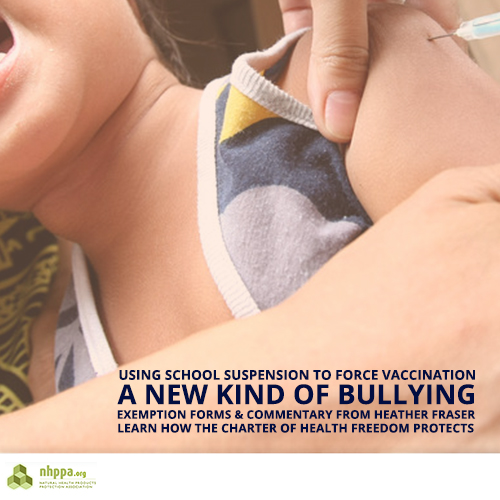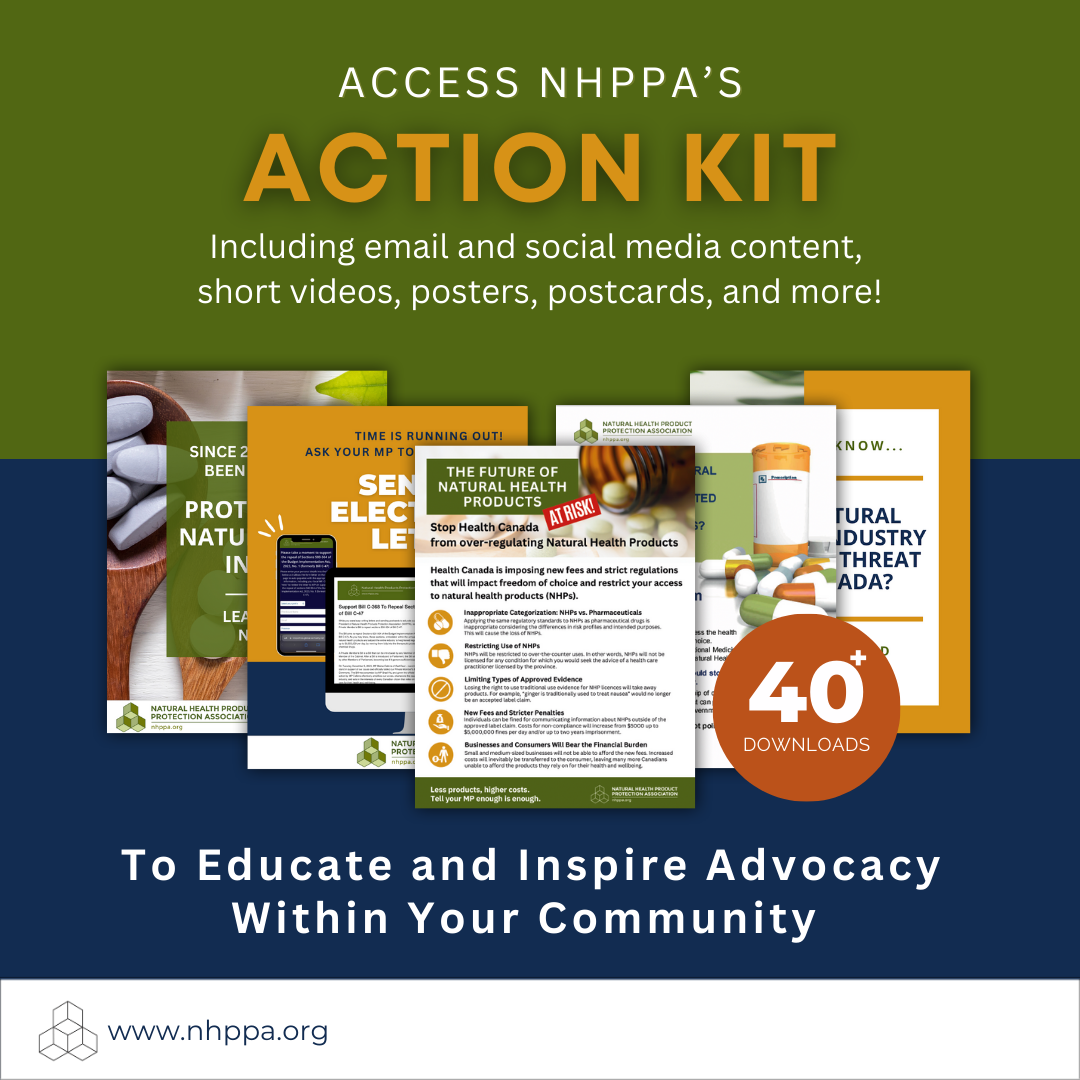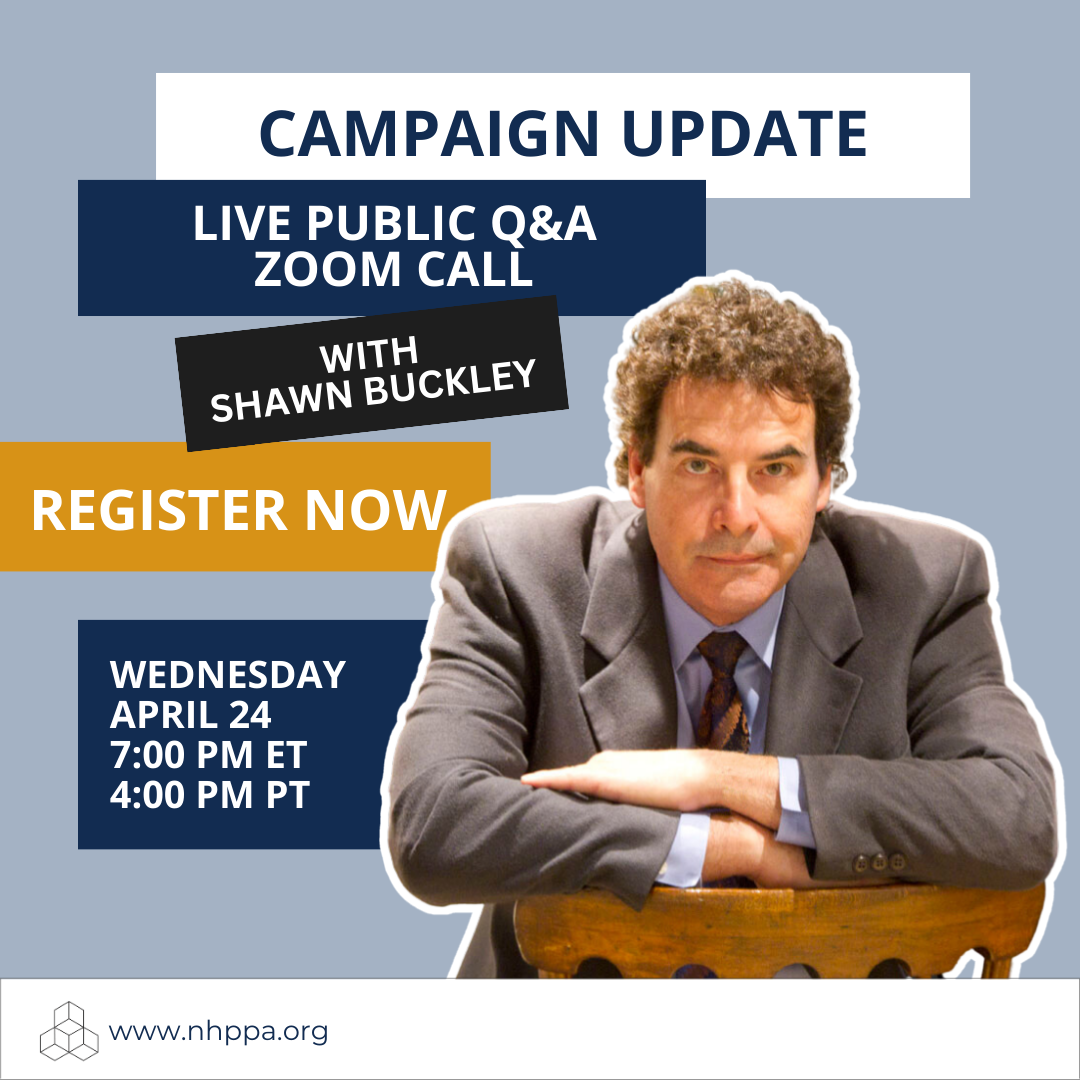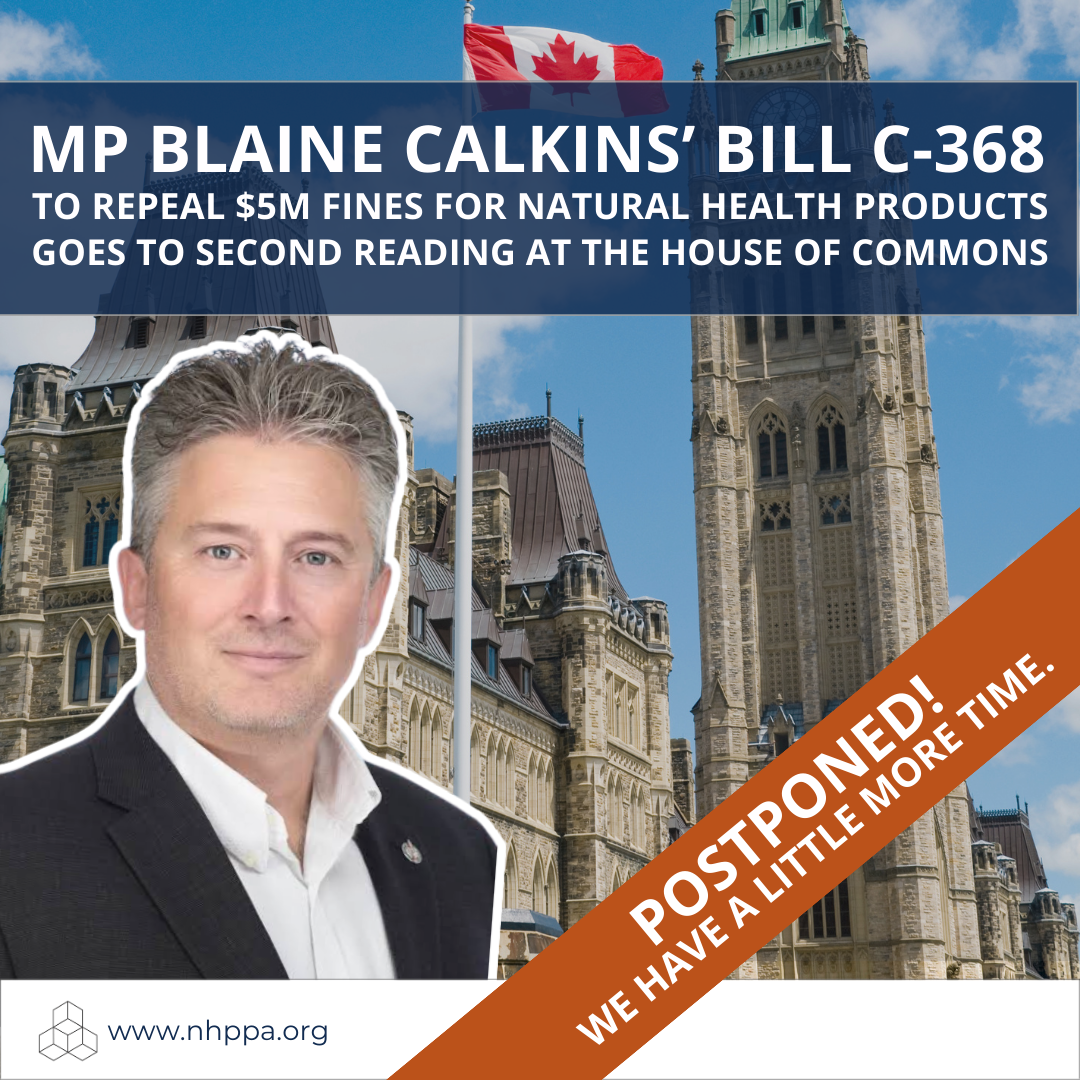
This September 28, 2017 CBC News article (3 minute read), “659 elementary school students in Windsor area suspended for incomplete immunization records”, reports on the Ontario mandate to temporarily suspend students if their immunization records are not up to set standards.
For those who are concerned with the safety of current vaccination programs in Canada, this information will not be new but it will be an important confirmation.
For, or against, NHPPA advocates that vaccination is a personal choice.
Under the Canadian Constitution, vaccination cannot be made mandatory. That is to say, federally, immunization is not mandatory according to Health Canada.
Two provinces, Ontario and New Brunswick, have passed legislation governing the vaccination of school-aged children. As of September 1, 2017, Ontario residents who want an exemption from vaccination for their children will not be able to file the necessary exemption form with their local Public Health office until they have attended a mandatory vaccine education session, failing which they face a fine of up to $1000 and the suspension of their unvaccinated child from school. In New Brunswick, the filing of the appropriate exemption form is sufficient for those who do not wish for their children to receive the mandated vaccinations.
Vaccine Choice Canada addresses the issue of legal vaccine exemptions on their website. We encourage everyone who wants to reject vaccinations for themselves, and their families, visit their website. It has all of the information you need, including downloads of required Exemption Forms. You will find definitions, regulatory documents, data sheets and more for your support.
NHPPA friend and supporter, Heather Fraser, author of “The Peanut Allergy Epidemic”, with a foreword by, Robert F. Kennedy Jr., responded with the following when we asked for her to share her comments on the CBC News article.
“For decades, government has used the authority of schools to leverage compliance from parents and students to get vaccinated. Typically, parents are not even told that vaccination is not mandatory. Rather, it is often left unsaid that the Immunization of School Pupils Act (ISPA) includes an exemption clause – for a student to be exempted from one or all of the vaccines for the “designated diseases” a form is available that parents complete, have notarized at city/town hall or by their MPP and then deliver to the local health unit (keep a copy for your records). If this form is not completed then, by this law, your child can be suspended for 20 days and there may be a fine of $1,000. After 20 days, your child can go back to school because there is another law about school attendance.
With vaccination rates tumbling — in 2013, 23% of 2 year olds had not received the DPT according to Health Canada; 11% did not receive the MMR – the government has amended the ISPA to withhold the exemption form until the mother has attended a vaccination education session. Its purpose is to persuade her to vaccinate. This session may challenge the Health Care Consent Act if material risks of the procedure are not provided along with benefits. But be careful, they decide what is a material risk is and what is not.
Please keep in mind that the government does not acknowledge vaccine injury much less offer support if your child is injured (anaphylaxis, neurological injuries – please read vaccine package inserts). The under-reporting of adverse events is an enormous problem for our passive vaccine surveillance system, and even when there is a report there is no follow up to determine long term outcomes. There is no question that these include life threatening peanut allergy in children and devastating neurological injuries. There is much that can be said about the lack of vaccine safety and unintended consequences of mass vaccination including the measles paradox (something to Google). The fact is that concerned parents are backing away from these one-size-fits all injections and government is pushing back.”
Consistent with Federal law, the Charter of Health Freedom asserts “the right to make personal health decisions without the interference of the State” Section 2 (c), “the right to sovereignty over one’s body” Section 2 (b); “the right to refuse any treatment” Section 2 (e).
Read the rights and fundamental freedoms relevant to you as a Canadian in this proposed law, drafted by NHPPA’s President Shawn Buckley, that would elegantly replace any regulations that currently govern NHPs.




